The point on the graph where the function intersects the y-axis
Y-intercept
Is the function below a quadratic function?
p(x) = 150(3)x + 3x - 250
No
The two quadratic functions, f(x) = x2 and g(x) = 2x2 + 3, are shown in the graph. Which parabola is g(x)?
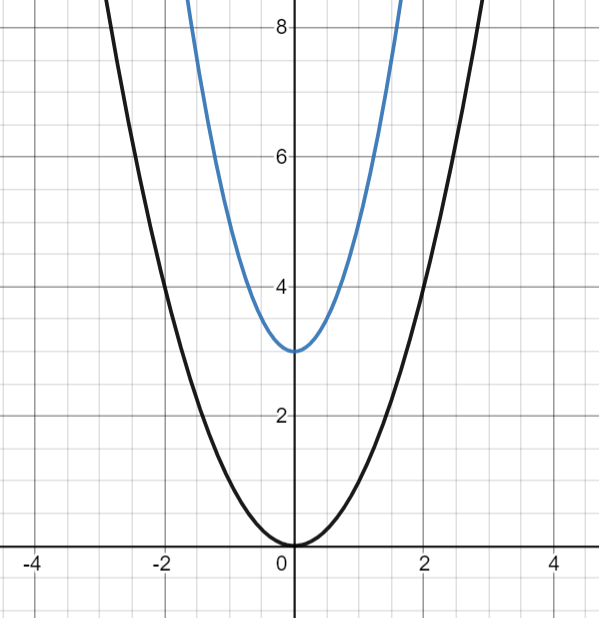
g(x) = 2x2 + 3 is the blue parabola with a vertex of (0,3)
What is/are the solutions to
x2 - 4 = 0
x = -2
x = 2
Does the graph represent a linear, an exponential, or a quadratic function?
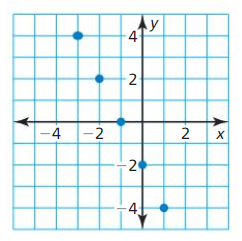
Linear
The U-shaped graph of a quadratic function
Parabola
What is the standard form of a quadratic equation?
y = ax2 + bx + c
What is the vertex of this quadratic function?
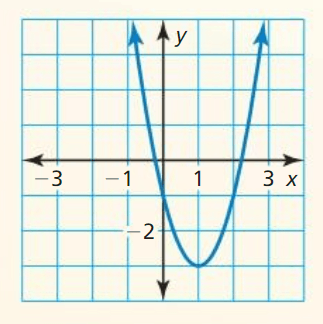
(1, -3)
What is/are the solutions to
2x2 = 128
x = 8
x = -8
Does the graph represent a linear, an exponential, or a quadratic function?
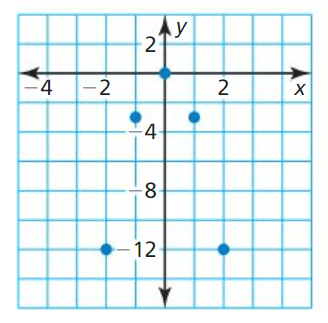
Quadratic
The vertical line that divides the graph of a quadratic function into two symmetric parts
Axis of symmetry
Does the quadratic function y = x2 + 4x - 5 have a minimum or maximum value?
Minimum value
What is the axis of symmetry of the quadratic function graphed below?
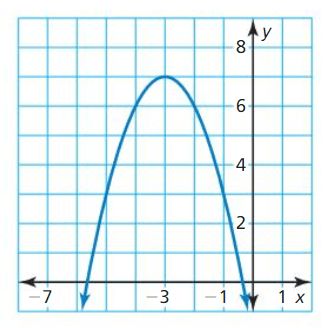
x = -3
What is/are the solutions to
9x2 + 10 = 91
x = 3
x = -3
Does the data in the table represent a linear, an exponential, or a quadratic function?

Linear
The point(s) on the graph where a quadratic function intersects the x-axis
*Bonus 50 points for each synonym*
X-intercepts, zeros, roots, and solutions
Name one similarity and one difference between the graphs of the functions f(x) = x2 and g(x) = -4x2.
Similarities: Both form parabolas. Both have a vertex of (0,0) and an axis of symmetry of x = 0. etc.
Difference: f(x) has a minimum. g(x) has a maximum. The parabola of g(x) opens down and is narrower than f(x). The parabola of f(x) opens up and is wider than g(x). etc.
What are the x-intercepts of the quadratic function shown in the graph?
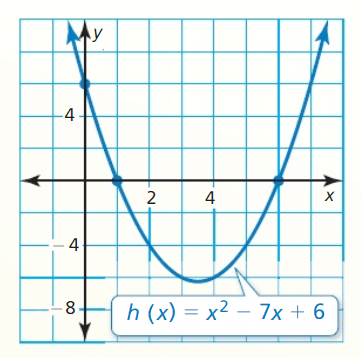
1 and 6
What is/are the solutions to
7x2 - 14x + 7 = 0
x = 1
Does the data in the table represent a linear, an exponential, or a quadratic function?

Exponential
a, b, and c of a quadratic equation are also called....
coefficients
Find the vertex, y-intercept, and x-intercepts of
y = -x2 -6x -10
Vertex: (-3, -1)
Y-intercept: (0, -10)
X-intercepts: None
If the quadratic function graphed below is in the form f(x) = ax2 + c, what must be true about a and c?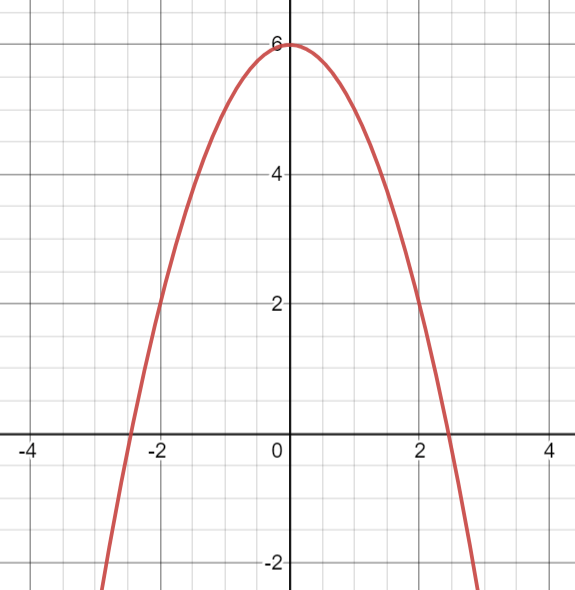
a is a negative number
c is 6
What is/are the solutions to
7x2 = -63
No solution
Does the data represent a linear, an exponential, or a quadratic function?
(-2,8), (-1,0), (0,-4), (1,-4), (2,0), (3,8)
Quadratic